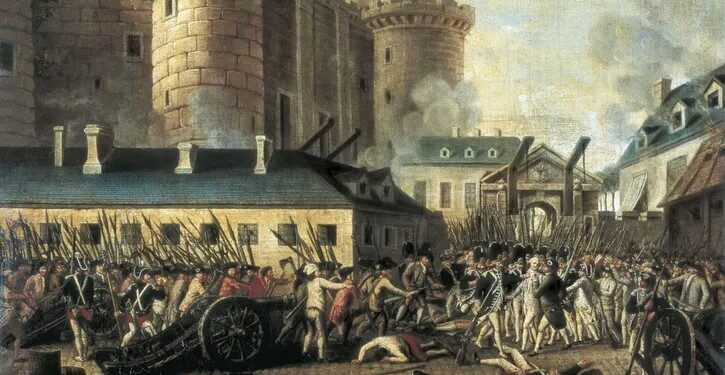The storming of the Bastille on July 14, 1789, marks a pivotal event in the French Revolution, symbolizing the end of the absolute monarchy and the birth of a new era for France. This dramatic event was driven by the growing discontent among the French populace, fueled by economic hardship, social inequality, and the perceived tyranny of King Louis XVI.
In the late 18th century, France faced severe financial crises due to costly wars, including support for the American Revolution, and extravagant spending by the monarchy. The common people, burdened with heavy taxes, faced rising bread prices and widespread famine. The Estates-General meeting in May 1789, called to address these issues, led to the formation of the National Assembly by the Third Estate, representing the common people. Tensions escalated as the Assembly sought to reform the political structure of France, clashing with the interests of the nobility and the monarchy.
Amidst this backdrop, rumours spread in Paris that the king was planning to use military force to suppress the National Assembly. Parisians, fearing a crackdown, began to arm themselves. The Bastille, a medieval fortress and prison symbolizing royal authority, became a target. Though it housed only seven prisoners at the time, the Bastille held a significant cache of arms and gunpowder, essential for the revolutionaries.
On the morning of July 14, a large crowd gathered outside the Bastille, demanding the surrender of the fortress and its arms. Negotiations with the governor, Bernard-René de Launay, failed to quell the mob’s anger. Tensions erupted into violence as the crowd stormed the gates. The defenders, heavily outnumbered, capitulated after a fierce battle. De Launay was captured and later killed by the mob.
The fall of the Bastille had profound symbolic significance. It demonstrated the power of the people to challenge and overthrow an oppressive regime. The event galvanized support for the revolution across France and led to the rapid spread of revolutionary fervor. The National Assembly, emboldened by the uprising, moved forward with reforms that would dismantle feudal privileges and establish a constitutional monarchy.
The storming of the Bastille is celebrated annually on July 14 as Bastille Day, a national holiday in France. It serves as a powerful reminder of the people’s role in shaping history and the enduring values of liberty, equality, and fraternity that emerged from the French Revolution. The event remains a testament to the transformative power of collective action against tyranny and injustice.
newshub



Recent Comments